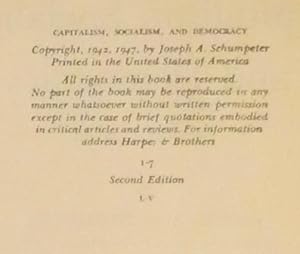

Indeed, it is unclear how small the electorate can become before Schumpeter might consider its reclassification into oligarchy, aristocracy or some other form of government. A political system can limit its electorate to a small minority and still claim a democratic form of government. He allows for “disqualifications on grounds of economic status, religion and sex” which others may not “consider compatible with democracy.” He goes so far as to apologize for the racism which was America’s great challenge to democratization as he explains that “a race-conscious nation may associate fitness with racial considerations.” Ultimately, the composition of the electorate is inconsequential to Schumpeter. But Schumpeter diverges from this approach because he allows the commonwealth to define “the people.” The consequences are simply incompatible with the popular notion of democracy today. Participation has become a fundamental aspect of democracy.

Schumpeter removes the ideals and reclassifies democracy simply as “that institutional arrangement for arriving at political decisions in which individuals acquire the power to decide by means of a competitive struggle for the people’s vote.” Huntington simplified the definition to “the selection of leaders through competitive elections by the people they govern.”

The Classical Theory was largely based on ideas derived from Rousseau’s Social Contract, yet they were shaped and molded over two hundred years of political thought to expand beyond the nebulous “general will” to establish elections as the expression as the will of the people. Schumpeter deserves credit for redefining democracy as a form of government rather than an ideal of governance. Nonetheless, it is impossible to have a firm grasp on theories of democracy without the study of what has become known as the Schumpeterian theory of democracy. But like his ideas about capitalism and socialism, his ideas about democracy have been challenged by an evolution in the political order. In the preface to the first edition he admits, “The problem of democracy forced its way into the place it now occupies in this volume because it proved impossible to state my views on the relation between the socialist order of society and the democratic method of government without a rather extensive analysis of the latter.” Indeed, he found himself challenging the foundations which underpin what he described as the Classical Theory of Democracy. Schumpeter never intended to offer a landmark definition of democracy.


 0 kommentar(er)
0 kommentar(er)
